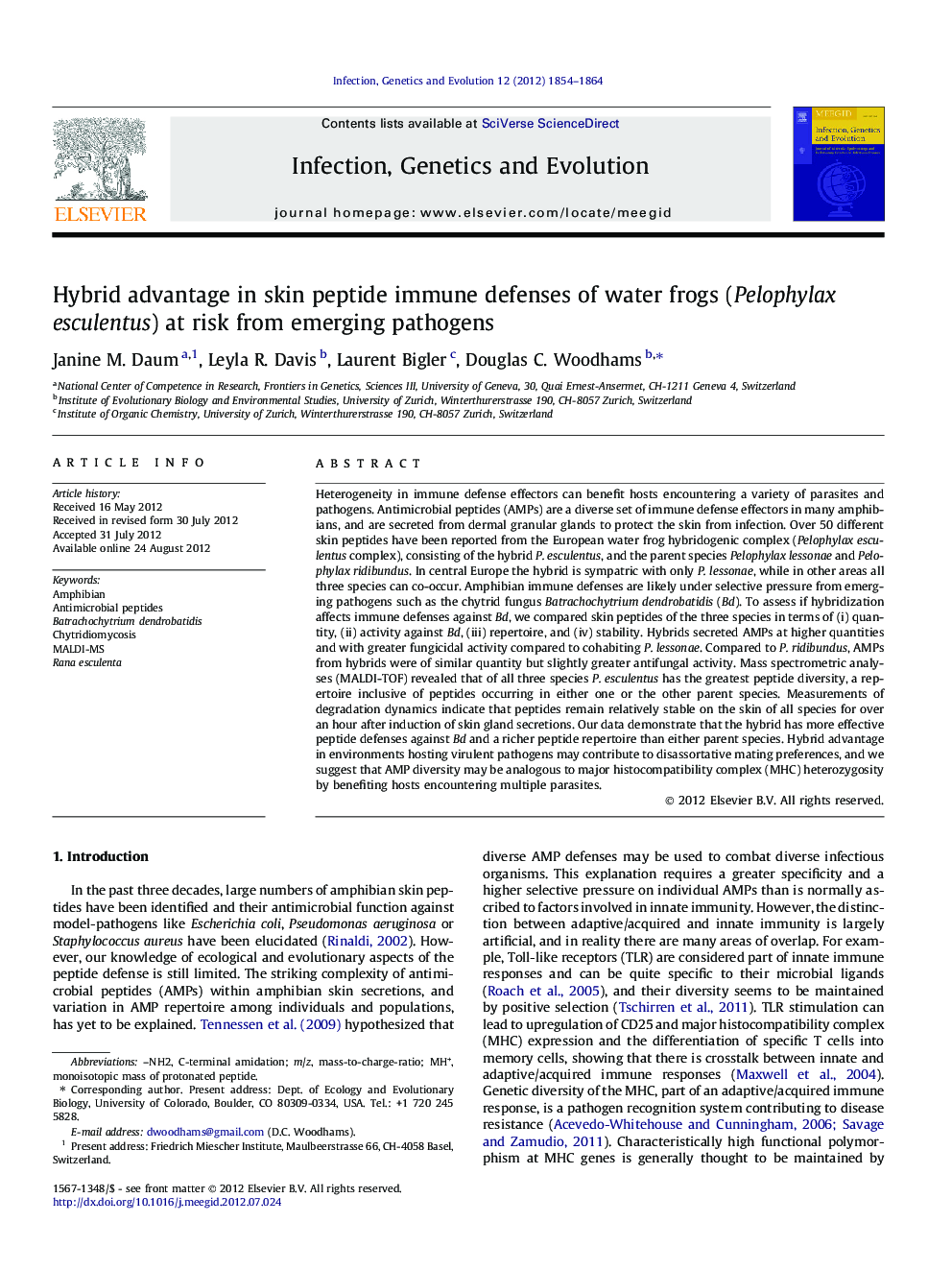| کد مقاله | کد نشریه | سال انتشار | مقاله انگلیسی | نسخه تمام متن |
|---|---|---|---|---|
| 5911320 | 1161362 | 2012 | 11 صفحه PDF | دانلود رایگان |

Heterogeneity in immune defense effectors can benefit hosts encountering a variety of parasites and pathogens. Antimicrobial peptides (AMPs) are a diverse set of immune defense effectors in many amphibians, and are secreted from dermal granular glands to protect the skin from infection. Over 50 different skin peptides have been reported from the European water frog hybridogenic complex (Pelophylax esculentus complex), consisting of the hybrid P. esculentus, and the parent species Pelophylax lessonae and Pelophylax ridibundus. In central Europe the hybrid is sympatric with only P. lessonae, while in other areas all three species can co-occur. Amphibian immune defenses are likely under selective pressure from emerging pathogens such as the chytrid fungus Batrachochytrium dendrobatidis (Bd). To assess if hybridization affects immune defenses against Bd, we compared skin peptides of the three species in terms of (i) quantity, (ii) activity against Bd, (iii) repertoire, and (iv) stability. Hybrids secreted AMPs at higher quantities and with greater fungicidal activity compared to cohabiting P. lessonae. Compared to P. ridibundus, AMPs from hybrids were of similar quantity but slightly greater antifungal activity. Mass spectrometric analyses (MALDI-TOF) revealed that of all three species P. esculentus has the greatest peptide diversity, a repertoire inclusive of peptides occurring in either one or the other parent species. Measurements of degradation dynamics indicate that peptides remain relatively stable on the skin of all species for over an hour after induction of skin gland secretions. Our data demonstrate that the hybrid has more effective peptide defenses against Bd and a richer peptide repertoire than either parent species. Hybrid advantage in environments hosting virulent pathogens may contribute to disassortative mating preferences, and we suggest that AMP diversity may be analogous to major histocompatibility complex (MHC) heterozygosity by benefiting hosts encountering multiple parasites.
Highlights⺠Skin peptide defenses of a hybrid water frog and both parent species were compared. ⺠We examined peptide quantity, antifungal activity, diversity, and stability. ⺠Hybridization affects skin peptide defenses. ⺠Hybrid antifungal peptide activity is greater than the cohabitating parent species. ⺠Hybrids are advantaged against the emerging chytrid fungus threatening amphibians.
Journal: Infection, Genetics and Evolution - Volume 12, Issue 8, December 2012, Pages 1854-1864